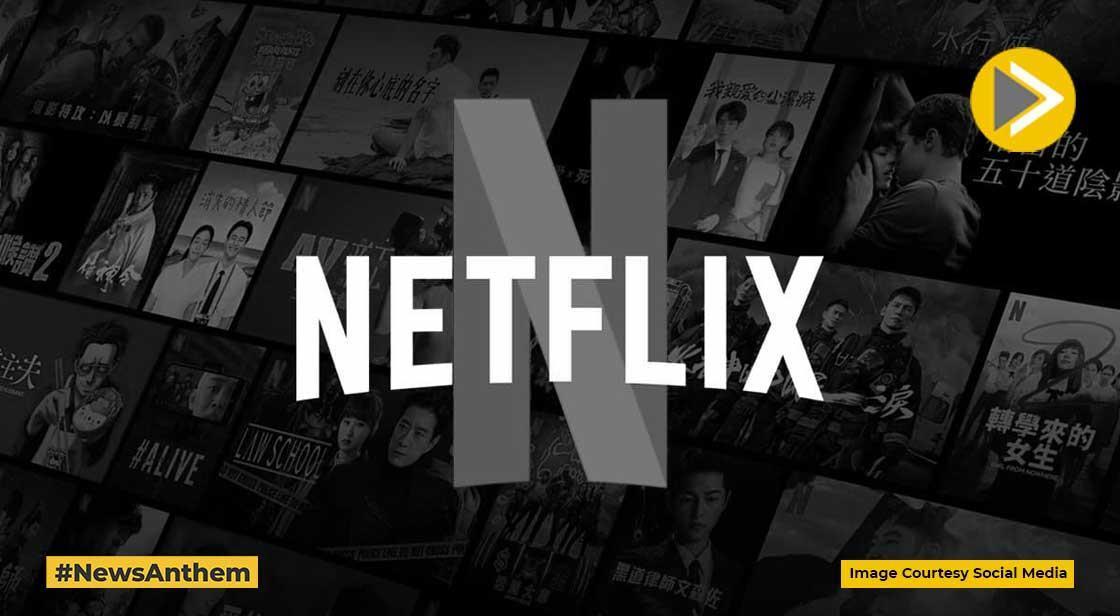Netflix partners with Mattel & Hasbro to bring KPop Demon Hunters to toy shelves

News Synopsis
Streaming giant Netflix is expanding its content ecosystem by partnering with major toy manufacturers Mattel and Hasbro to bring its breakout animated film KPop Demon Hunters to the world of toys and games.
The deal, announced Tuesday, will translate the film—about a K-pop girl group fighting demons and performing stadium concerts—into dolls, action figures, plushes, role-play kits and collectible items.
Since its June release, the movie has clocked over 325 million views, making it Netflix’s most-watched original film. Its soundtrack has gone platinum, and the single “Golden” hit No. 1 on the Billboard Hot 100.
Products, Timeline and Scope of Collaboration
Mattel to Lead Premium Toy Line
Mattel will spearhead the global launch of KPop Demon Hunters merchandise starting in 2026. The product catalogue will include dolls, action figures, playsets, accessories and collectibles tied into the film’s characters and themes.
About toy manufacturers Mattel
Mattel, Inc. is a leading American multinational toy manufacturing and family entertainment company headquartered in El Segundo, California. Founded in 1945, it is one of the world's largest toymakers and is globally recognized for its massive portfolio of iconic brands.
Key Brands and History
Mattel was co-founded by Ruth and Elliot Handler and Harold "Matt" Matson in 1945, initially making picture frames and dollhouse furniture. Their breakthrough came with their first successful toy, the Uke-A-Doodle toy ukulele in 1947.
Iconic Brands
Mattel's brand portfolio features some of the most recognized and high-selling toys globally:
-
Barbie: Launched in 1959, conceived by Ruth Handler and named after her daughter Barbara. It is the company's best-selling toy in history and a massive cultural franchise.
-
Hot Wheels: Introduced in 1968 by Elliot Handler to compete with Matchbox cars, it's one of the top-selling global toy properties.
-
Fisher-Price: Acquired in 1993, this brand focuses on educational and developmental toys for infants, toddlers, and preschoolers.
-
American Girl: A brand of dolls, books, and accessories that celebrate historical and contemporary girls.
-
Other Key Brands: UNO, Masters of the Universe (He-Man), Matchbox, Thomas & Friends, and Polly Pocket.
Current Business Strategy (The "IP-Driven Toy Company")
Mattel's current strategy, often accelerated by the success of the Barbie movie, focuses on transforming the company into a full-fledged Intellectual Property (IP) driven family entertainment company, not just a toy manufacturer.
The core pillars of this strategy include:
-
Monetizing IP in Entertainment: Licensing its iconic brands for live-action and animated films, TV shows, and streaming content. Recent examples include the Barbie film, and planned projects based on Hot Wheels, Polly Pocket, and a live-action Magic 8 Ball series.
-
Expanding to Digital: Increasing its presence in digital content and gaming, including collaborations with platforms like Roblox and the development of mobile apps.
-
Core Toy Innovation: Maintaining focus and innovation within its three primary segments: Dolls, Vehicles, and Infant/Toddler/Preschool, ensuring physical toys remain relevant in the digital age.
-
Sustainability: Committing to more sustainable products and packaging, including the Mattel PlayBack program, which allows consumers to send back toys for recycling and recovery.
Hasbro to Develop Plushes, Role-Play & Games
Hasbro’s portion of the deal will involve youth electronics, special-feature plush toys and role-playing merchandise. Their launch includes a themed edition of MONOPOLY Deal: KPop Demon Hunters.
The planned rollout for retailers is from spring 2026 through the holiday season and beyond.
Strategic Implications for Netflix
Expanding Beyond Subscriptions
With this move, Netflix is clearly aiming to transform a streaming-only hit into a multi-channel intellectual property. By harnessing toy and merchandise sales, Netflix seeks to diversify its revenue away from pure subscription income.
Building Franchise Potential
The success of KPop Demon Hunters demonstrates that even non-franchise films can evolve into broader fan-driven brands. The collaboration with major toy players mirrors how companies like Disney turned hits (e.g., Frozen) into long-lived merchandising empires. Reuters
Conclusion
The Netflix-Mattel-Hasbro alliance marks a pivotal moment in the lifecycle of a streaming hit. By converting KPop Demon Hunters into a toy and game franchise, Netflix is moving beyond viewing metrics and stepping into the realm of physical consumer goods.
This strategy not only seeks to capitalise on the film’s massive popularity but also positions the work as a lasting brand with year-round relevance. While turning streaming success into a merchandise juggernaut is no small feat, this deal signals Netflix’s intent to amplify fan engagement, build new revenue streams and compete with traditional entertainment franchises on the retail shelf.
You May Like









